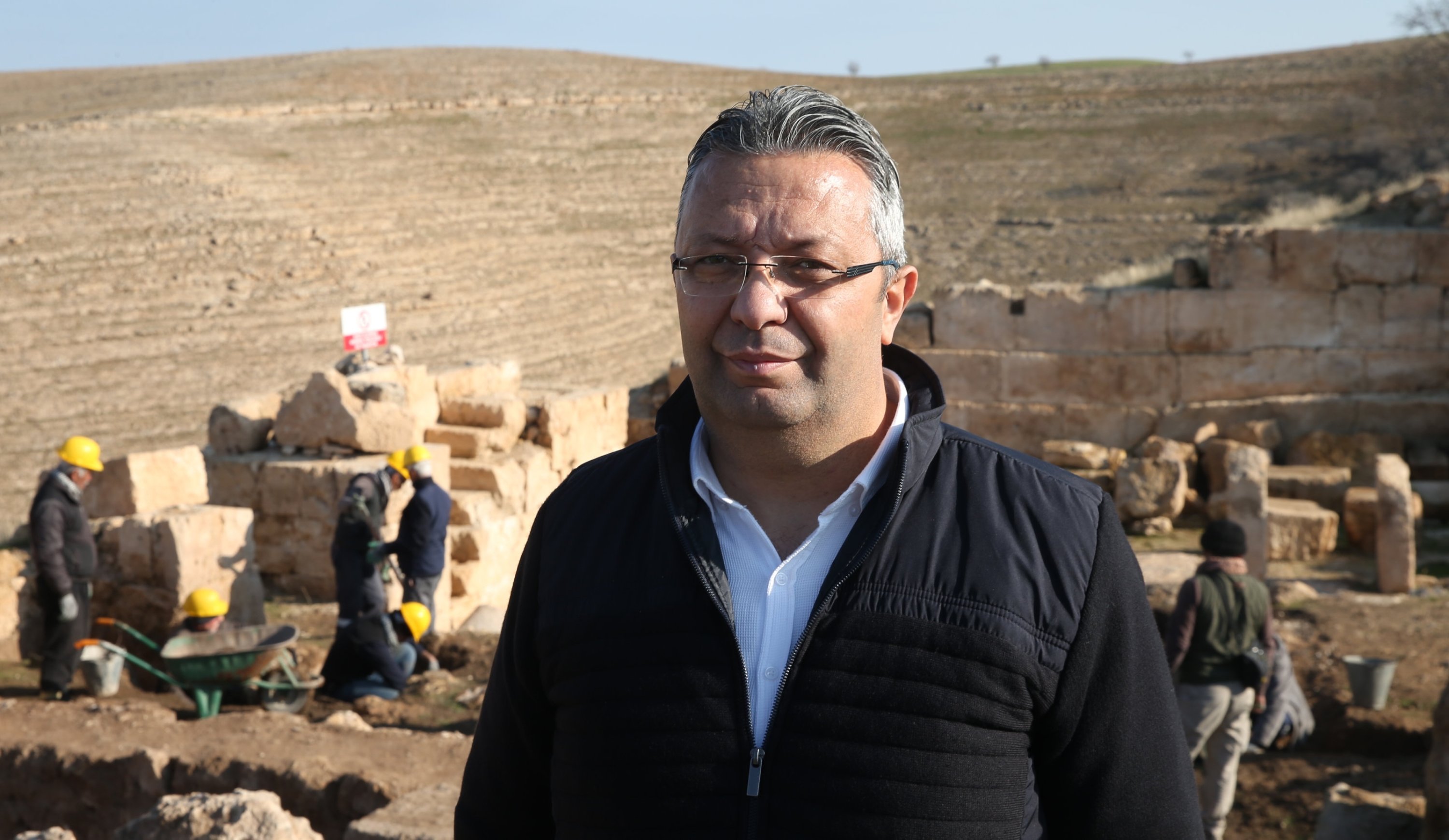© Turkuvaz Haberleşme ve Yayıncılık 2024
Some surgical tools dating back 1800 years were found near an underground temple belonging to the Mithras religion during excavations at Zerzevan Castle, which served as a Roman garrison for centuries, located in Diyarbakır.
The military settlement at Zerzevan Castle is encompassed by formidable walls, standing at an impressive height of 12-15 meters (39-49 feet) and stretching for 1,200 meters. Within these walls, various architectural remnants bear witness to its rich history. Among them is an impressive 21-meter-high watchtower, the Southern Tower, which served as a strategic vantage point. Additionally, the castle boasts a church, an administrative building, an arsenal and a rock altar located in the southern area, where public structures were situated.
Aytaç Coşkun, the head of the Zerzevan Castle excavation team, stated in his remarks to journalists that they have been conducting excavation works in the castle throughout the year since 2014.
Highlighting significant findings this year at Zerzevan Castle, Coşkun said: "The most crucial discovery among the findings is the newly uncovered surgical instruments. This site served as a Roman garrison and military settlement, hosting a legion (the largest military unit of the Roman army) group of 1,200 soldiers. Professional doctors accompanied the soldiers, indicating the likelihood of numerous surgeries being performed here."

"In both wartime and during training, injuries occurred, necessitating a substantial surgical facility. These instruments, associated with the surgical facility, were unearthed in a sacred area. They are small, measuring around 12 centimeters, and have dual functionality. Typically, surgical instruments are designed with two sides to pierce on one end and lift and cut the skin on the other. Important surgeries were likely performed using these instruments," he added.
Coşkun also emphasized that the surgical instruments are made of bronze and are quite sharp.
Stating that the excavations will continue in the area, "Surely, the hospital where these operations were conducted will be revealed. In this year's excavations, we found two instruments. Given military settlements and injuries, we will discover a significant number of such tools as excavations progress. Thousands of artifacts have been unearthed in the castle, and the surgical instruments we found are 1,800 years old," he added.
Being included in the UNESCO World Heritage Temporary List, the castle hosted 100,000 visitors in the first five months of the year. While it is expected to accommodate 500,000 people by the end of the year, with the completion of the visitor center, the goal is to attract at least 1 million people annually to the area.
The archaeological findings also include rock tombs, water channels, 54 underground cisterns, an underground church, an underground shelter capable of accommodating 400 people, hidden passages and an underground temple associated with the Mithras religion of the period. Its historical significance continued as it later fell under the control of Islamic armies.
